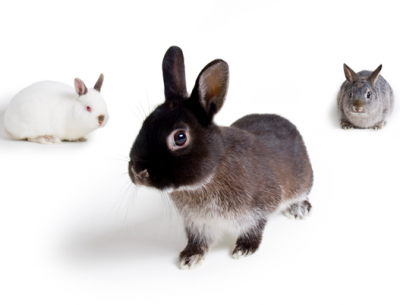Industry cannot win on the question of animal testing
Although nothing has been officially announced, according to UK newspaper The Guardian, it will not be long before the European Commission announces that a complete ban on animal testing cannot be implemented in the time frame originally proposed.
Since 2009, using animals to test cosmetics ingredients in the European Union has been banned. In addition, a marketing ban has been introduced, which bans the sale of products containing ingredients tested on animals elsewhere.
However, this marketing ban was introduced in a staggered fashion, depending on what the test was designed to find out, with some falling under a 2009 deadline and some a 2013 limit. And, this is where the complication arises.
Some of these tests have proved more complicated than others to replace with non-animal alternatives, and last summer the European Commission published a document highlighting that replacements for many of the tests set for a 2013 ban were not yet available.
At the time the European Commission was heavily criticised by animal rights bodies for taking ‘too scientific’ a stance, and not recognising the moral implications of continuing to use animals – thoughts that have been echoed in recent media coverage.
However, last year also saw intensified pressure on the industry for ‘safe’ cosmetics from consumers and interest groups.
The Story of Cosmetics, a video documentary by Annie Leonard supported by the Campaign for Safe Cosmetics fuelled consumer fears about ingredients that may prove toxic, carcinogenic or hormone disrupting.
If deemed necessary, and the level of consumer fear and action from interest groups suggest that this will increasingly be the case, such ingredients may be required to undergo further testing, to be sure that they pose no risk to consumers.
However, if a ban is enforced on animal testing, proving the safety of ingredients may not be possible.
This leaves the industry in a very tricky position. Consumers and interest groups demand ingredients that are safe, and regulation that will investigate not just new ingredients before they go to market, but re-investigate old ones if enough concern is voiced.
However, they also demand cruelty-free cosmetics that have not been tested on animals.
Reconciling these demands is going to be very challenging for the industry while alternatives are not yet up to speed.




![Skinidea has developed a new skin care brand, MDP, specifically to target US beauty consumers. [Medipeel]](/var/wrbm_gb_food_pharma/storage/images/_aliases/wrbm_tiny/publications/cosmetics/cosmeticsdesign-asia.com/headlines/business-financial/skinidea-develops-new-brand-to-target-us-market-as-part-of-expansion-plans/17362677-1-eng-GB/Skinidea-develops-new-brand-to-target-US-market-as-part-of-expansion-plans.jpg)


